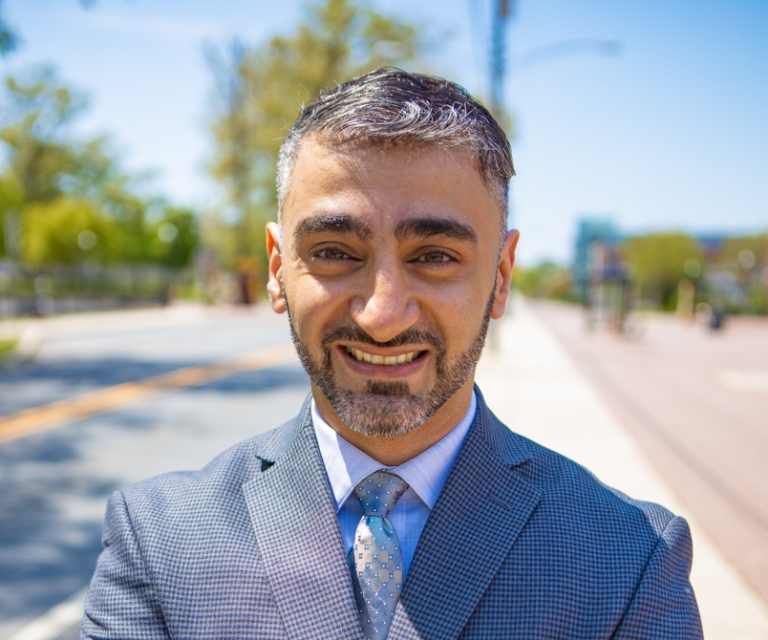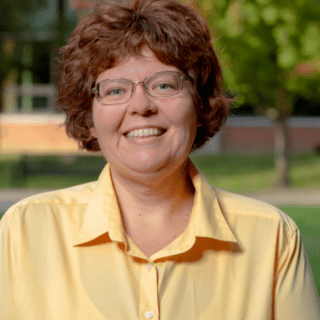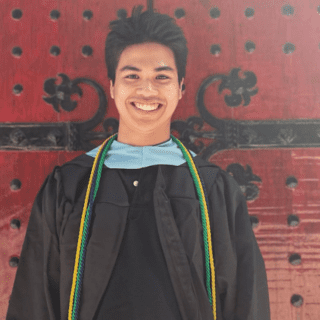
Alum Supports First-Generation and Lower-Income College Students
Hatef Alavi is the first in his family to attend college. He earned a doctorate in educational leadership and is an administrator at the University of Pennsylvania’s Penn First Plus program. His job allows him to support talented and resilient students who face significant barriers to a college education, like lower-income students and other first-generation students like him.
“All of my academic, personal, and professional experiences are derived from my own life experiences. Growing up as an immigrant, I had to work hard, stay determined, and appreciate the opportunities granted to me when I joined this country,” said Alavi.
Alavi is a native of Iran. Now 34 years old, he immigrated to the United States when he was 13. His family settled in a suburb of New Jersey, and he could speak only a few basic phrases of English.
“I was motivated to pick up the language very quickly but was frustrated because my efforts did not translate to success right away. I realized I had to be patient, I had to be consistent in my efforts,” said Alavi.
His determined mindset led to him seeking out a college education. After earning his bachelor’s degree from Rowan University, he took the next step in his education by enrolling in the University of Pittsburgh School of Education’s Master of Education in Higher Education Management program.
A Foundation for Working in Higher Education
Alavi, who graduated in 2011, credits the Pitt Education program for teaching him about the theory, policy, and practice of higher education administration. He also benefited from completing multiple internships and graduate assistantships as a student. He interned with the University of Pittsburgh housing services office and had two graduate assistantships: one at Carnegie Mellon University’s Heinz College’s admissions office and one as an academic coach in the Reaching Inside Your Soul for Excellence (RISE) mentoring program at Pitt.
“I was like a sponge. I said I wanted to learn as much as I can, especially as I was pursuing higher education as a career,” said Alavi.
Another aspect Alavi enjoyed about the Pitt higher education program was its cohort-based model. He learned alongside the same classmates during his two years in the program.
“As a first-generation student, it was vital to me to be with so many others who also identified as being a first-generation student. It made me feel more connected to the larger Pitt community and helped me to have a less challenging campus integration,” said Alavi.
“My Pitt experience was amazing,” he added. “The experiences and relationships I was able to build at Pitt helped me to extend my network in the field, enhanced my knowledge on the organizational culture at a large research-one institution, and helped me to gain confidence in my daily interactions with all students and university administrators.”
Paying it Forward in a Leadership Role
After graduating from Pitt, Alavi worked at Eastern Connecticut State University in housing and residence life. In 2016, he then returned to Rowan University to complete his Doctor of Education (Ed.D.) in educational leadership in higher education. His dissertation was about the lived experiences of first-generation Black males at a predominantly white university and the impact of their sense of belonging on their campus integration.
“My mission in life is really to inspire people. ‘Aspire to inspire before you expire.’ To me that saying has always played a role in everything I do,” said Alavi.
In his job at the University of Pennsylvania, Alavi is able to pay it forward by helping remove obstacles that prevent first-generation and/or lower income students from having access to a quality education. He works to ensure that students across the university are well supported in the areas of financial aid, college transition, advising, and academics.
His advice to all students is to “run your own race.” The message is even more relevant, he says, in challenging times.
“There is nothing wrong with being competitive, but be competitive in a healthy way. Run your own race. Stay true to your own values and principles. It’s a disservice to us and unfair to them when you compare yourself to others,” said Alavi.
Alavi has followed this advice from the time he arrived in America as a teenager. It has led him to a doctorate in education and the opportunity to change the lives of others one person at a time by working in higher education.
Learn More
The Pitt School of Education is nationally ranked by U.S. News & World Report.
Applications are being accepted for our programs in higher education:




